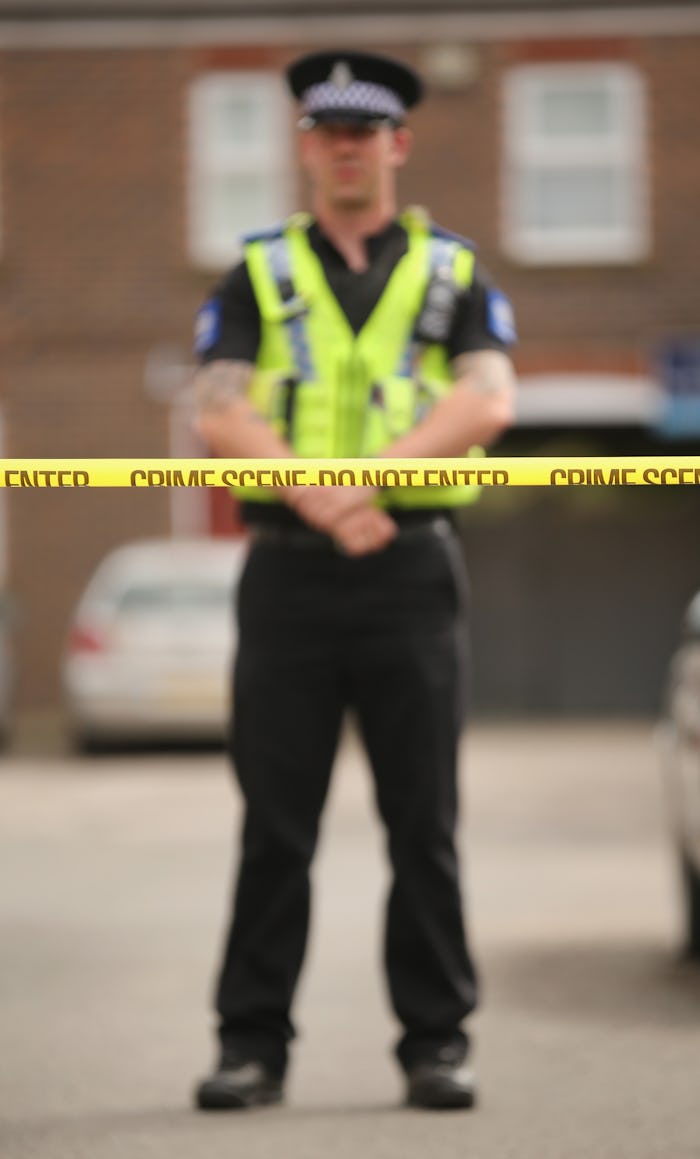News

Tweeting "Prayers For Townville" After The Shooting Means Nothing, & Here's Why
On Wednesday afternoon, two students and a teacher at Townville Elementary School in Townville, South Carolina, were shot by a single gunman, according to CNN. The two students who were shot were flown to a nearby medical hospital and their conditions were not known, according to WYFF News 4 on Facebook. WYFF was reporting from the scene on Wednesday afternoon, and the live video feed from the network's Facebook page was filled with comments of support from people — many of them parents — around the country. But, what was frustrating about the comments, was how many of them said things like "Prayers for Townville!" Each time an instance of gun violence happens in the U.S., people respond with prayers, and, because the violence just keeps happening, it's clear that prayers for Townville mean nothing. What the country needs is common sense gun violence prevention legislation.
According to WYFF 4, the shooter was reportedly a teenager, and he was taken into custody Wednesday afternoon. It's unclear what his motive was or how he was tied to the kids at the elementary school. The inclination to send "prayers" in response to a shooting like the one at Townville Elementary School or Umpqua Community College in Oregon or Sandy Hook Elementary (the list goes on) makes sense: people don't have control over the situation, and that lack of control frightens them — especially when the people who are endangered are children.
I'm not knocking genuine care for children or for the victims of mass shootings. But, the truth is that too many people become the victims of gun violence because prayers are all we use in response to tragedies that seem to repeat themselves weekly.
From 1966 to 2012, nearly one-third of the world's mass shootings took place in the United States, according to CNN. And, according to data from 2013, people have a greater chance of dying in a mass shooting if they are at school or at work, according to CNN. After the shooting at Pulse Nightclub in Orlando, Florida, the deadliest mass shooting in U.S. history, the Senate failed to pass any additional measures on gun safety. In June, the Senate attempted to adopt four different proposals: the first would have banned anyone on the terrorist watch list from purchasing weapons or explosives (the least popular proposal); the second would require a 72-hour delay on sale of explosives and weapons to anyone under investigation for terrorism or who had been suspected of terrorism in the last five years; the third was a universal background check proposal; and the last was about additions to the mental health system.
Despite their shortcomings, none of the proposals were seriously considered or debated — all were shot down. The most popular proposal — universal background checks for all gun sales, even those conducted at gun shows and on the internet — was also proposed and shot down after Sandy Hook, when 20 children and 6 adults were killed. Universal background checks are supported by 90 percent of Americans, according to Politifact (which double checked the validity of the statistic against debunkers).
Still, a teenager was able to get a weapon and walk into an elementary school and shoot three people. Despite widespread support for some kind of restriction on gun purchase or some kind of background check, politicians refuse to adopt gun safety legislation. Much of it has to do with the funding many of them get from the National Rifle Association, but the rest of it has to do with the fact that they aren't being pressured by enough Americans. When shootings happen, Americans send prayers, they mourn, they tweet with hashtags, and then they move on.